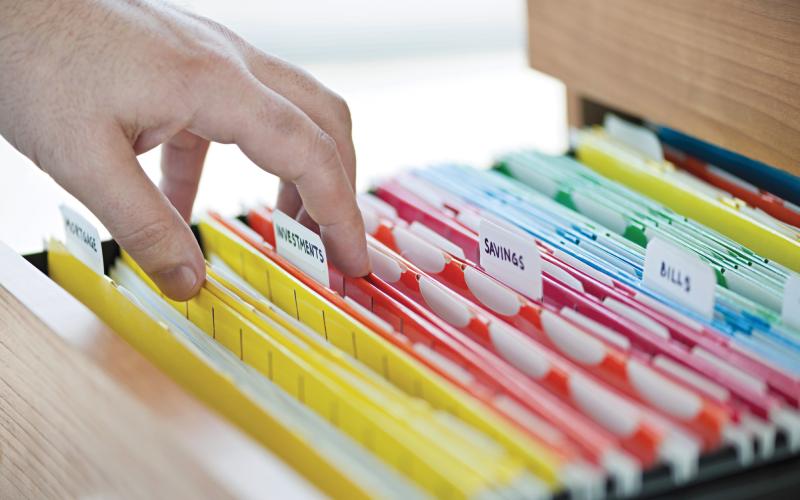
Get Organized! Be prepared!
A fiduciary is a person with legal authority to act on your behalf in a variety of situations (health care, financial, guardianship, executor, trustee, etc.). Each of us will need one or more fiduciaries. Anyone who serves as your fiduciary will need access to your documents and information about you (also known as Personally Identifiable Information or PII). This entails a need to be organized. Organization is the key to ensuring your fiduciary knows what to do and when.
Fiduciary tasks
- Pay utilities, taxes, and other expenses
- Hire services providers (health care, contractors, etc.)
- Decide when health care treatment is not the best option
Your fiduciary will not take over these tasks immediately. Instead, they need to be prepared for emergencies or at end-of life, when you cannot do these tasks. Perhaps you see yourself needing to serve as a fiduciary for a friend or relative. It’s hard to know where to begin the conversation around caregiving and end-of-life planning.
Program Goals
- Compare and contrast legal situations/outcomes related to family caregiving and probate (e.g., incapacitation, dying intestate).
- Define and differentiate the duties and responsibilities of different types of fiduciaries.
- Identify documents and information (e.g., property deed, when and how bills are paid) a fiduciary might need to execute their duties.
- Explain and compare organization strategies for important documents and information.
- Compare strategies to keep personal information and documents secure (e.g., safe/lock box, virtual storage).
- Discuss professional support (e.g., legal aid, financial planners, elder law).
Workshops
You will meet four times using Zoom over a 10-month period. Homework provided to include expanded information about replacing important paperwork, what to keep and how long, how and why to freeze your credit report, and other financial and legal topics. The homework will support the broader goal of the program to make you an informed consumer, prepare you to ask someone to serve as a financial or health care POA, and start discussions around caregiving and end-of-life with your relatives and close friends. This program will provide an opportunity for you to work through the process of organizing your documents and information (financial, medical, legal) in a small group learning environment. By the end of this program, you will be confident in both your ability to serve as a POA for another adult and to ask someone to be a POA for you.
Featured Resources
"We know that navigating this topic can feel overwhelming—there’s so much to understand! That’s why we’re committed to creating a supportive learning environment where you can turn your plans into action."


